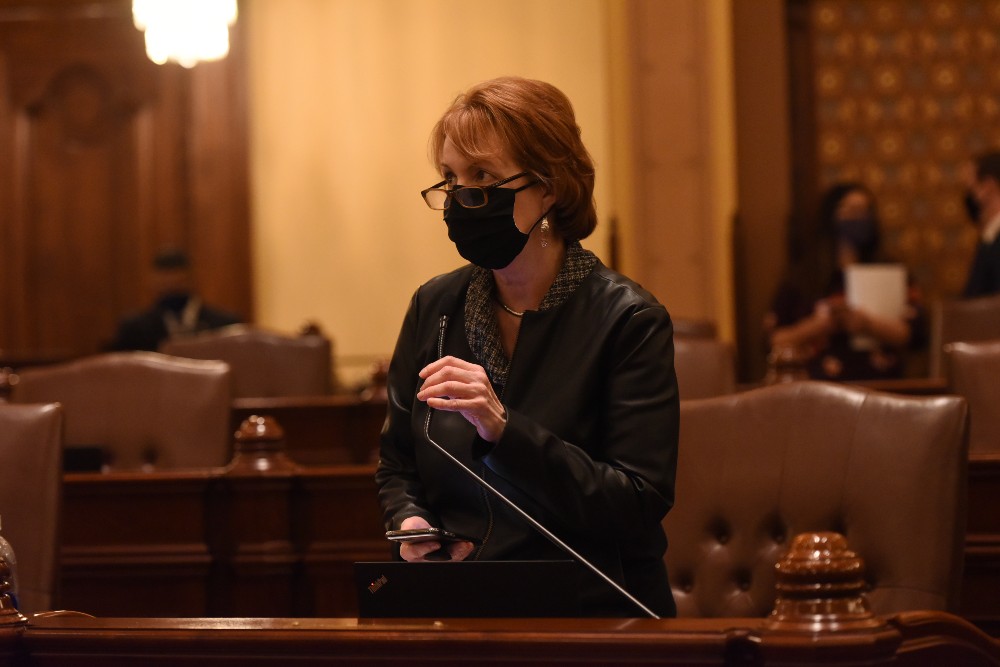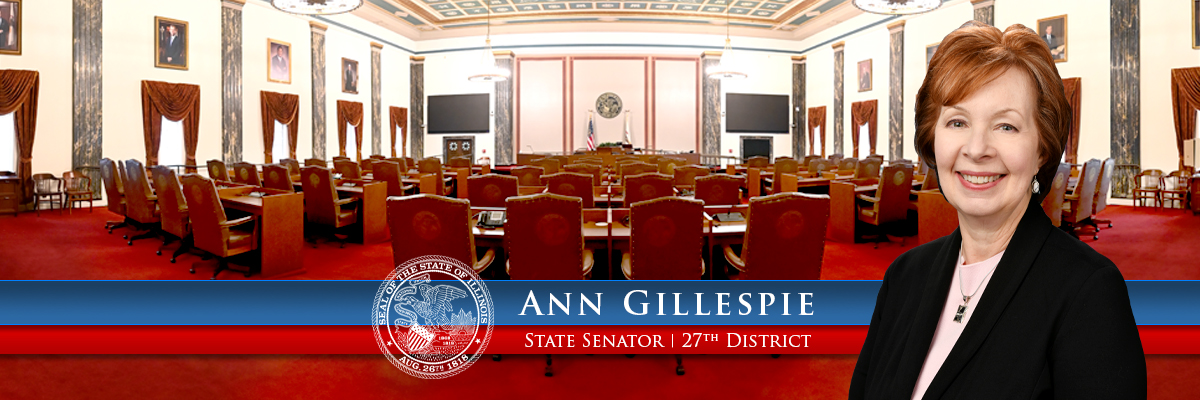 SPRINGFIELD – In an effort to keep communities safe from gun violence, State Senator Ann Gillespie (D-Arlington Heights) passed legislation in the Illinois Senate that would strengthen the Firearms Restraining Order Act on Monday.
SPRINGFIELD – In an effort to keep communities safe from gun violence, State Senator Ann Gillespie (D-Arlington Heights) passed legislation in the Illinois Senate that would strengthen the Firearms Restraining Order Act on Monday.
“Families must have a course of action to protect themselves when a household member shouldn’t have a gun,” Gillespie said. “This measure gives our partners in law enforcement the tools they need to intervene before a tragedy can occur.”
Under current law family members, household members and law enforcement may obtain a civil order to temporarily remove firearms from people who pose a risk of harm to themselves or others. If issued, the firearms restraining order would transfer any firearms, FOID card or concealed carry license to law enforcement for no more than six months. This legislation adds ammunition and firearm parts to the list of removeable items.
State Rep. Denyse Stoneback (D-Skokie) introduced the measure in the Illinois House.
"Increased awareness and education about the Firearm Restraining Order law as well as vigorous implementation will no doubt save lives and prevent gun tragedies,” Stoneback said. “I deeply appreciate Senator Gillespie’s work to pass this bill through the Senate. I am looking forward to concurring with the amendment in the House and sending it to the Governor’s office soon."
Eighteen other states have similar “red flag” laws that allow family and household members to seek restriction to a potentially dangerous person’s access to firearms.
The legislation also creates a three-year commission to implement the Firearms Restraining Order Act. The commission would be led by the Director of the Illinois State Police and responsible for developing a framework for the timely transfer of firearms when a firearms restraining order is issued. The measure also creates an awareness program conducted by the Department of Public Health so families know what recourse they have when intervention is needed.
House Bill 1092 passed the Illinois Senate and awaits final consideration in the Illinois House.


